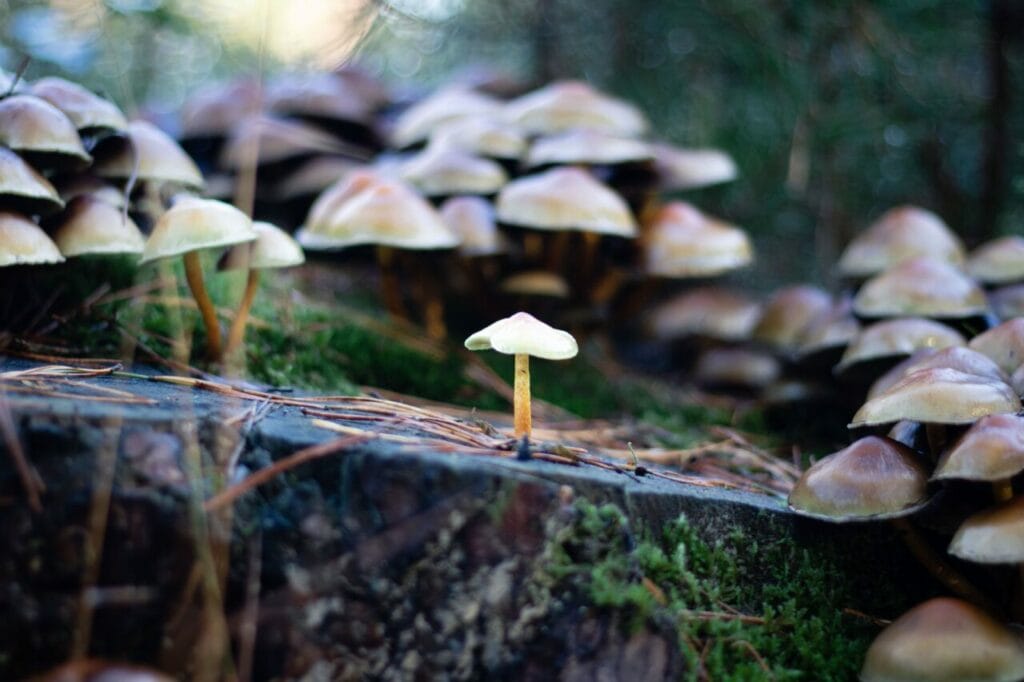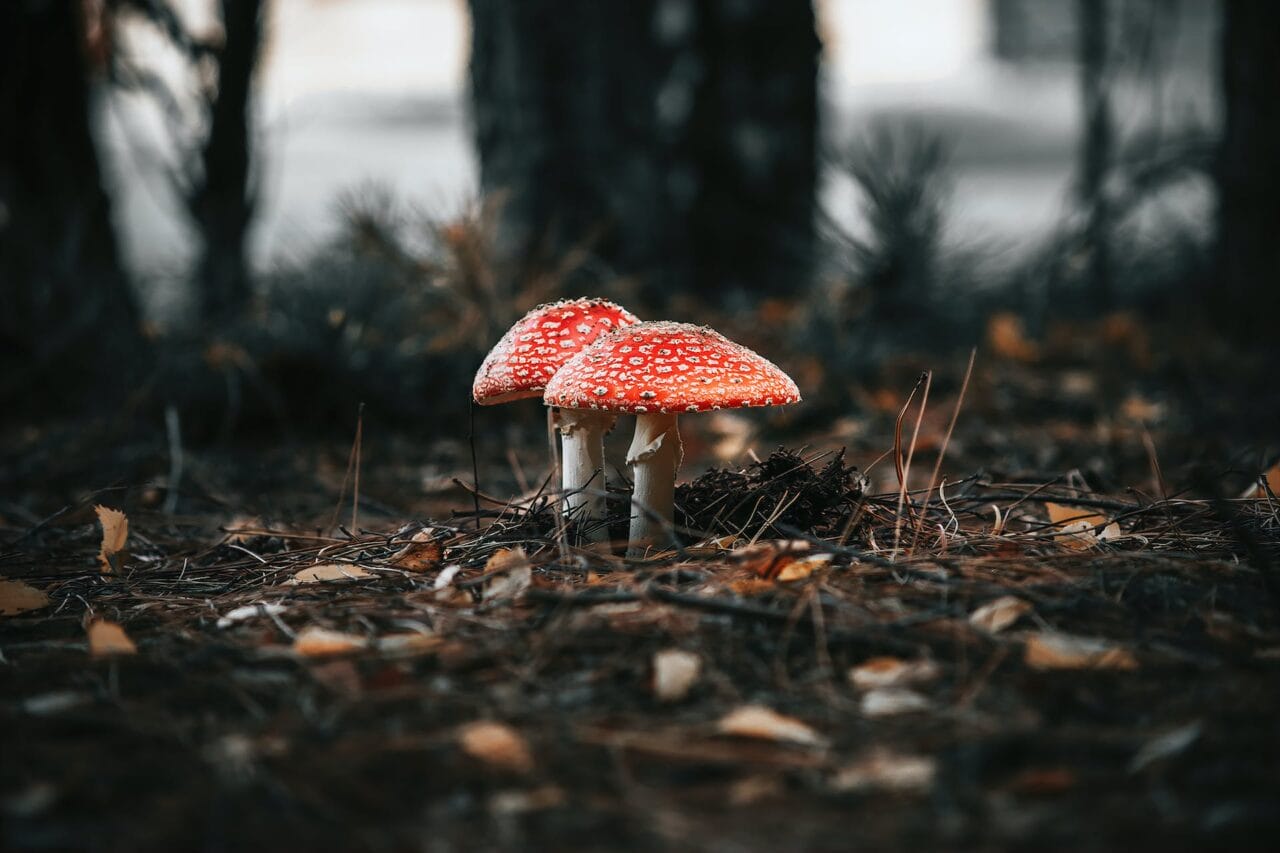Interest in psilocybin is steadily increasing, driven by studies into its potential advantages for mental health conditions like anxiety and addiction. Despite this, access to psilocybin remains challenging. The availability of laboratories and magic mushroom delivery services is limited, and the cost can be considerable.
This article will discuss the evolution of psilocybin, its present status, and the potential benefits it may provide to those seeking help.
[toc]Key Takeaways:
- Mushroom cultivation requires substantial effort and careful monitoring to avoid contamination during the inoculation phase.
- Psilocybin creates a psychedelic experience by influencing several brain areas, particularly the serotonin receptors.
- Psilocybin mildly increases heart rate, which stabilizes shortly after consumption, and generally does not trigger any other negative effects.

Delivering Only Top-Quality Magic Mushrooms
Magic mushrooms naturally thrive in various environments including manure-rich fields, leaf-filled temperate forests, grasslands, and woodlands. Over the centuries, people have ventured into these habitats to collect these fungi for medicinal purposes or for use in spiritual and religious rituals.
Traditional Approach
Nowadays, the ancient practice of mushroom foraging in these natural habitats is less common. This shift might be due to the rise of alternative methods like cultivation or the ability to order magic mushrooms online.
Wild mushrooms are usually less potent than their lab-grown equivalents, which are carefully grown under regulated conditions. Also, there’s a danger of accidentally picking a poisonous species when foraging in the wild.
Contemporary Approach
The mushroom production process initiates by developing spores to maturity. This complex procedure requires a high level of precision and meticulousness.
Cultivating mushrooms requires a significant investment of time and meticulous attention to detail to prevent any potential contamination during the inoculation phase. When the mushrooms are ready for harvest, labs or cultivators usually dry them to extend their shelf life. Fresh mushrooms have a lifespan of a few days, while dried ones can remain viable for several months, even up to a year.
Dried mushrooms are transformed into a variety of product forms by manufacturers. These range from microdose capsules to edibles, tinctures, and drinks, which are then distributed across Canada through magic mushroom delivery services.
Harnessing the Benefits of Psilocybe Cubensis or Magic Mushrooms
Researchers conduct clinical trials on mushrooms primarily to investigate their potential impact on mental health and mood disorders, based on anecdotal evidence. The scope of these studies is broad, encompassing everything from microdosing via capsules to full-blown mushroom trips using dried mushrooms or chocolate edibles.
Once consumed, psilocybin metabolizes into psilocin, a compound that acts similarly to serotonin, a neurotransmitter critical for mood regulation. It interacts with various areas of the brain, predominantly the serotonin receptors, initiating a psychedelic journey.
Those undergoing psilocybin therapy frequently report profound changes, not confined to heightened senses and visual alterations. The experiences can result in a considerable shift in self-perception and a deep alteration in personal perspective, often marked by profound revelations.
Depression and Suicidal Propensities
A study published in the Journal of Psychopharmacology explored the effects of a psychedelic experience on those grappling with depression and suicidal thoughts. Most participants found their experience with psilocybin extremely meaningful and emphasized its potential influence on their lives. Such high levels of satisfaction could amplify the effectiveness of mental health interventions, given the importance of patient engagement.
Safety Profile
In addition to examining the impact of psilocybin on depression and anxiety, researchers also study the safety profile of this substance. A study in JAMA Psychiatry reported that participants who took psilocybin showed a minor increase in heart rate and blood pressure two hours post-consumption. However, further analysis using Holter monitoring revealed no substantial increase in the risk of cardiac arrhythmias in the psilocybin group compared to the niacin group. The study also found no notable psychological distress among users.





